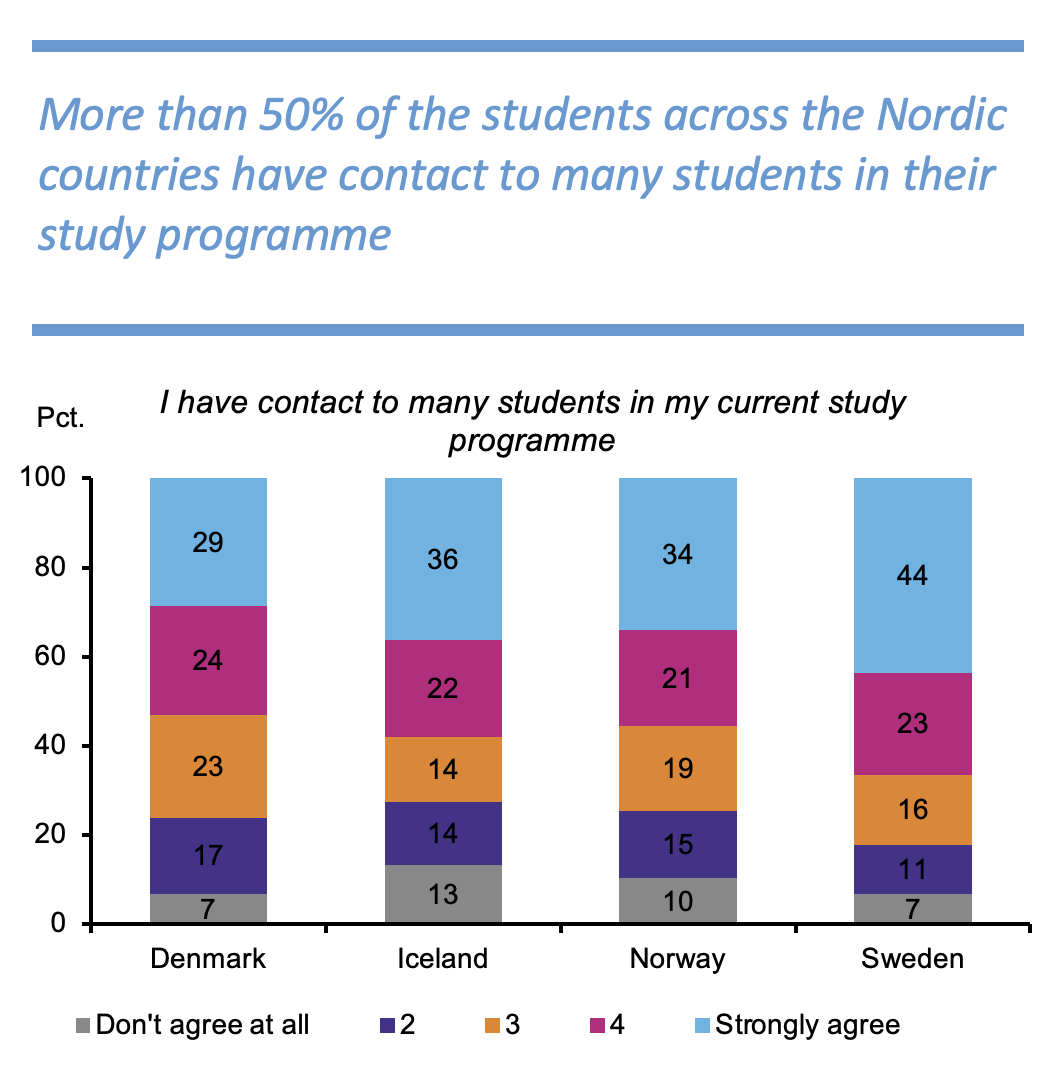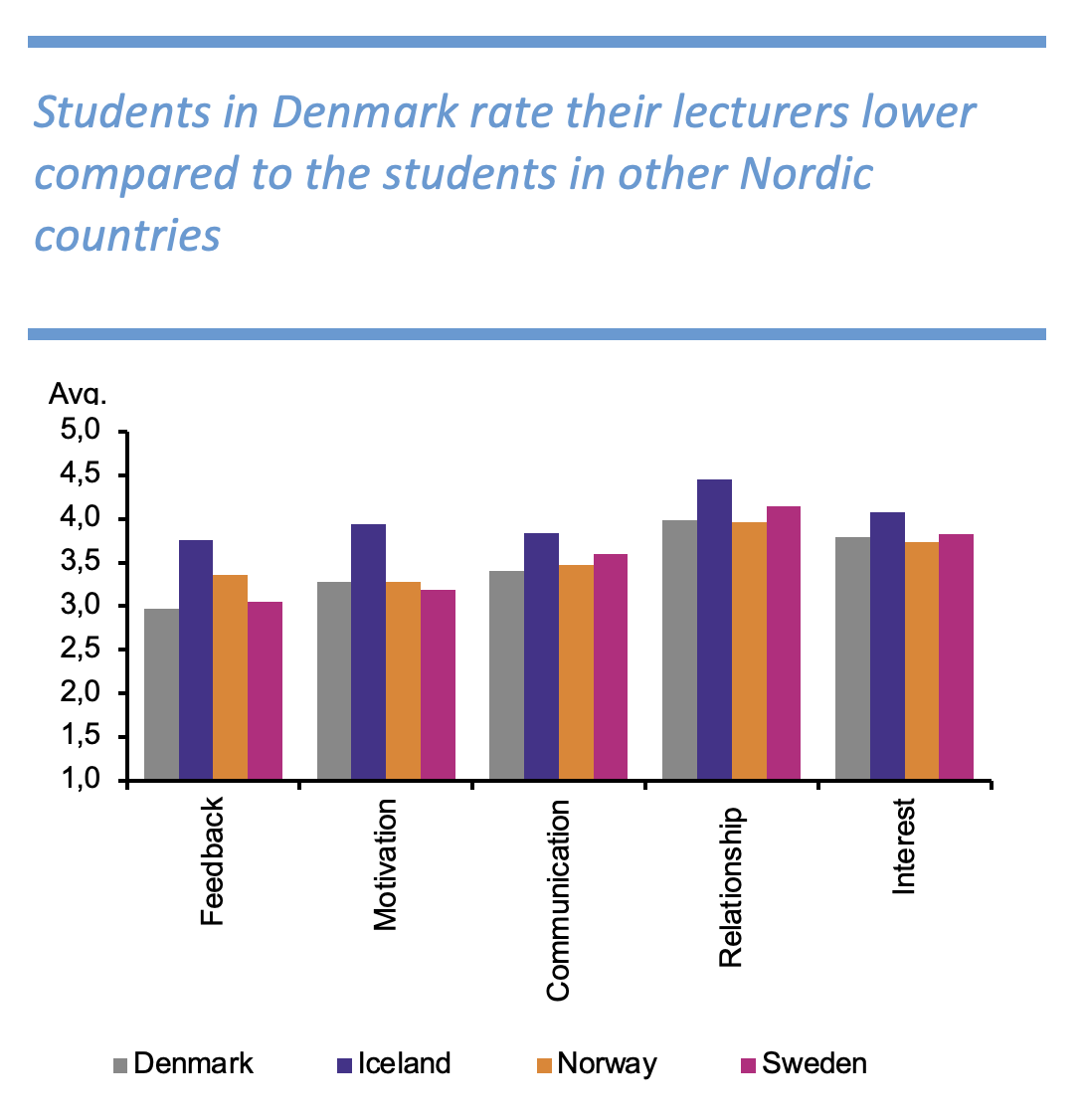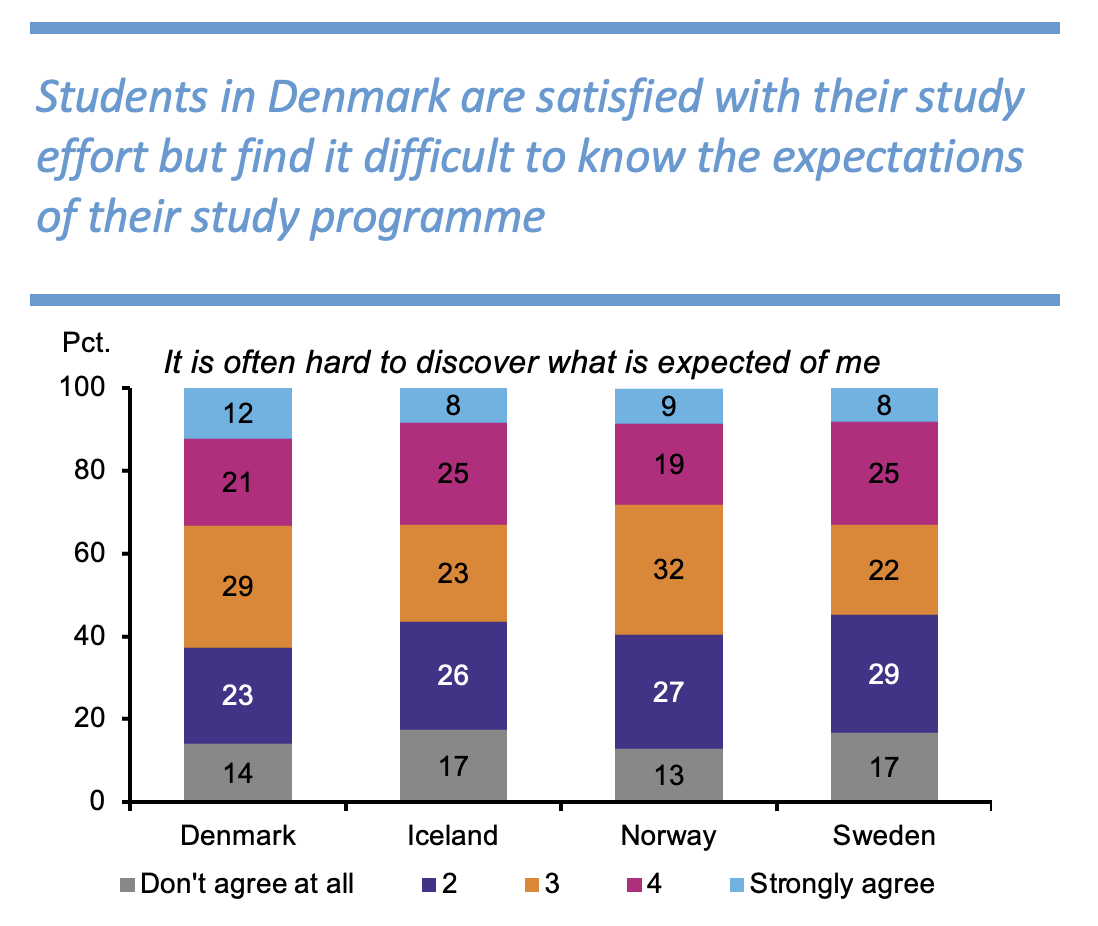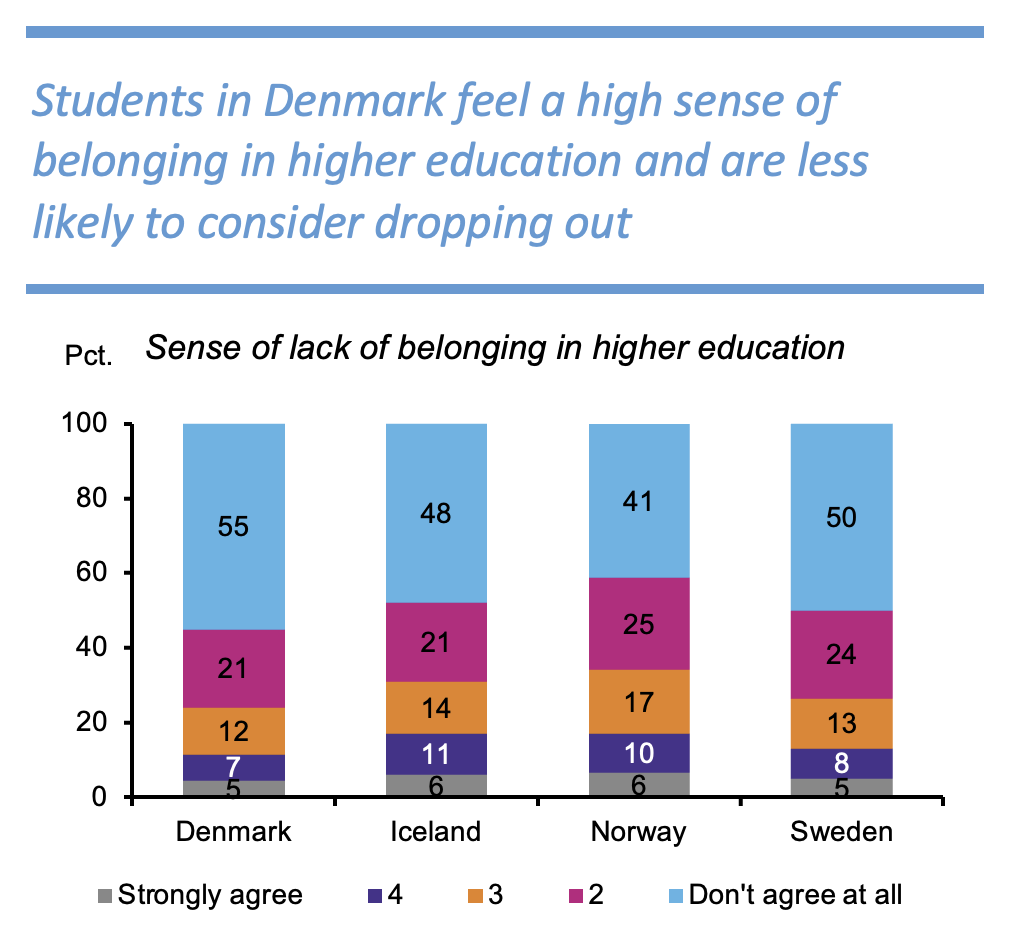Students’ learning and wellbeing: a Nordic perspective
Students across the Nordic countries have contact to many students in their study programme
In all the Nordic countries more than 50% of the students agree or strongly agree to have contact with many students in their study programme. However, almost one out of four students (24%) in Denmark feels a lack of contact with many students in their current study programme. The share is higher than in Sweden (18%), almost the same in Norway (25%), but lower than in Iceland (27%).

Students in Denmark overall rate their lecturers lower compared to the students in other Nordic countries
Students in Denmark receive less feedback and communication from their lecturers compared to students in other Nordic countries. The overall average of students’ perception of the lecturers is also lower among Danish students compared to students in Iceland, Norway and Sweden. Students in Iceland rate their lecturers highest on all five parameters of the teaching-learning environment.

Students in Denmark are satisfied with their study effort but find it difficult to know the expectations of their study programme
In Denmark 46% of the students find their study effort just as good as their fellow students. 38% indicate the effort is somewhat better or much better compared to their fellow students. The share of students feeling their effort is somewhat or much better is higher in Sweden (45%), lower in Norway (35%) and the same in Iceland (38%) compared to Denmark (not depicted in the figure).
In Denmark, Iceland and Sweden, one out of three students finds it difficult to know the expectations of their current study programme. In Norway the share is lower (28%) compared to other Nordic countries.

Students in Denmark feel a high sense of belonging in higher education and are less likely to consider dropping out of their study programme
Students in Denmark (76%) feel a higher sense of belonging in higher education compared to students in Sweden (74%), Iceland (69%) and Norway (66%).
In all the Nordic countries less than 10% of the students consider dropping out of the higher education. The share is lower in Denmark (3%) than in Sweden (5%), Norway (6%) and Iceland (6%) (not depicted in the figure).
In all the Nordic countries there is a link between the students’ sense of belonging in higher education and students’ intention of dropping out of their study programme.

One in ten Danish students experience long-standing mental health problems
10% of the Danish students indicate having long-standing mental health problems that have lasted or are likely to last for at least 6 months. The share of mental health problems among students in HE is higher in Iceland (18%) and Sweden (15%) but lower in Norway (7%).
In Denmark 12% of the students with mental health problems are severely limited in daily activities while 20% are severely limited in their studies. The share of students feeling severely limited in their studies is higher in Iceland (31%) and Norway (23%) and lower in Sweden (15%) when compared to Denmark (not depicted in the figure).

Full version of the report “Student learning and well-being: a Nordic perspective” can be found here (in Danish)
